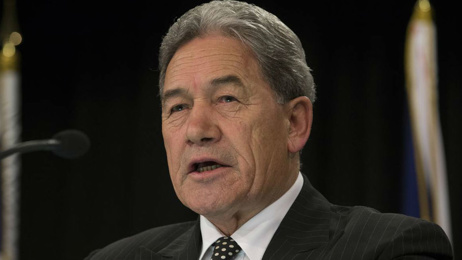Can Winston Peters negotiate a coalition agreement in four or five days?
Assuming talks with National and Labour start on Sunday, after special votes have been announced on Saturday, that's all the time he's got.
Peters has set Thursday, October 12, as his deadline for announcing a decision.
He set it during the campaign, giving an assurance the country wouldn't be kept waiting for nearly two months as it was in 1996 when the election was held on October 12 and the government was formed on December 10.
Twice this week Peters has said he will meet his deadline.
National and Labour say it's very tight.
Privately, they may think it's impossible but don't want to upset the kingmaker by saying so.
This situation has led to speculation that Peters isn't going for a comprehensive coalition deal. He doesn't need to.
The way the main parties handle MMP has evolved, and Helen Clark started the trend of support parties being tied only to confidence votes and not on anything else.
Clark and Peters made an agreement on that basis in 2005.
National ran the system from 2008 until now, supported by ACT, United Future and the Maori Party.
They were free to vote against the government on any legislation that wasn't a confidence vote - meaning the budget - and often did.
It works, although it can be tricky. The government failed to get its RMA legislation through Parliament this year because Peter Dunne and the Maori Party opposed it.
Support agreements can involve ministerial appointments - Dunne and Te Ururoa Flavell were examples of that.
It may be what Peters wants - if he does he could do it relatively quickly, but even so five days would be a stretch given he's negotiating with two parties.
An agreement like that would give a government the confidence votes to survive, but it would need NZ First's support to pass legislation that was opposed by Labour and the Greens.
NZ First could also decide to abstain on confidence votes. That's an accepted MMP situation.
A party holding the balance of power need not support either of the main parties, and that's what is meant by staying on the crossbenches.
If NZ First abstained it would hand National a fourth term because a confidence vote, on election night results, would be 59-52 - National plus ACT against Labour plus the Greens.
The government, however, would be in the unenviable position of having to bargain with NZ First to pass legislation - and NZ First could extract a high price by demanding in return implementation of its own policies.
Peters has said he has nine options, and a support agreement or abstention are obviously two of them.
The deadline isn't set in stone. He chose it because October 12 is Return of the Writ Day - the final legal step in the electoral cycle.
There's nothing that says a government must be formed by then.
Should National or Labour, or both, decide they need more time for their decision-making processes they could ask Peters to extend it.
Then it would be their fault.
Take your Radio, Podcasts and Music with you









